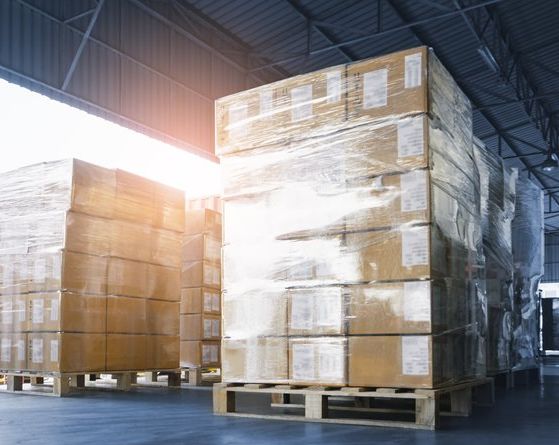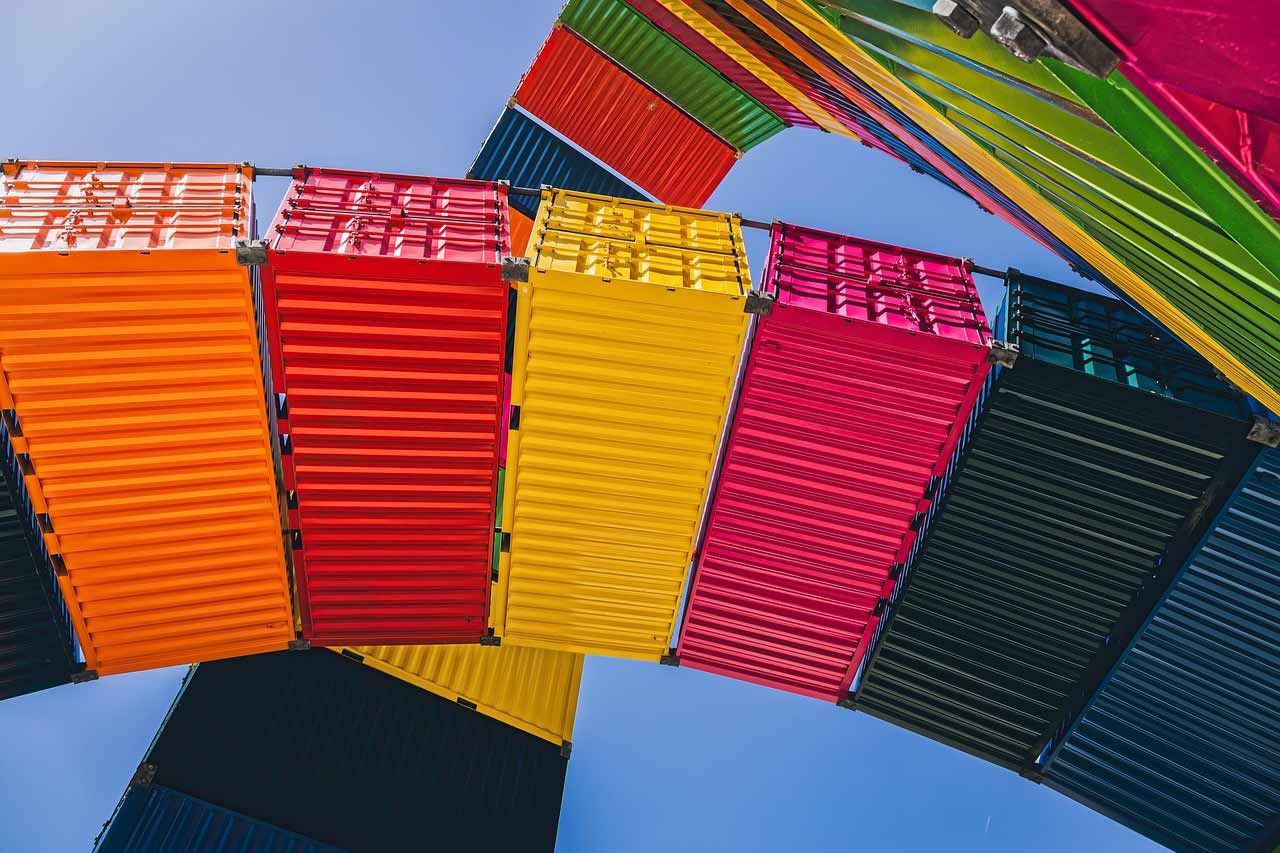LTL vs. Truckload Freight: Understanding the Differences
Learn the differences between LTL and FTL shipping.
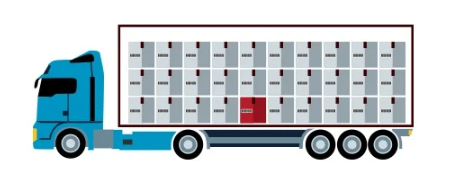
There are two main ways to transport freight: LTL (Less Than Truckload) and truckload. Both are commonly employed for shipping goods across the country, each with unique qualities suited to specific types of shipments.
LTL, short for Less Than Truckload, is utilized for shipments that aren't large enough to occupy an entire truck. LTL networks consist of carriers who combine multiple LTL freight shipments from various shippers into one truckload. The primary benefit of LTL freight is its cost-effectiveness, enabling shippers to save on transportation expenses by splitting the truck's cost with others.
LTL and FTL Shipping Differences
Understanding LTL Freight
LTL trucking is perfect for shipments that are too big for parcel carriers but too small to fill an entire truck. Carriers define LTL freight shipping differently, with some including shipments between 150 and 15,000 pounds. While other LTL carriers say LTL freight shipping is between 1-12 linear feet of trailer space. What the LTL carriers all share in common however is that instead of paying for a full truck, businesses share space, reducing freight costs. It is worth noting that because the truck makes multiple stops, delivery times can be longer than Full Truckload (FTL) shipping. Another drawback to LTL shipping is the additional handling within the LTL terminal network increases risk of damaged or lost freight.
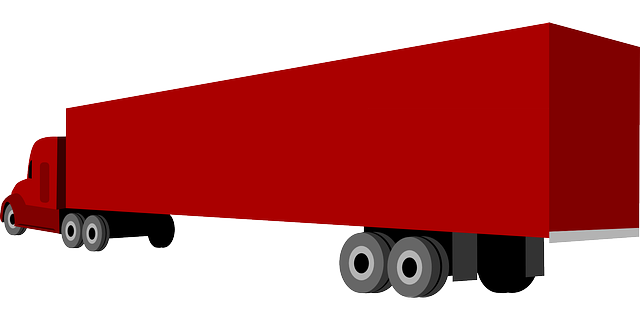
What is an LTL shipment?
LTL carriers have not unified around a single LTL definition. LTL, standing for Less than Truckload, sees many carriers honoring LTL tariffs for shipments comprising 1-6 pallets, without double stacking. This tariff pricing structure primarily hinges on linear feet of trailer space, with some carriers accepting 12 linear feet, while others extend it up to 20 feet.
If a shipment exceeds 6 pallets or 12 linear feet, it might qualify for volume LTL pricing or be routed as a partial truckload. Typically, LTL shipments range from 60 to 80 pounds up to 12,000 to 15,000 pounds.
Benefits of LTL Trucking
LTL shipping provides businesses with cost-effective and flexible solutions for transporting smaller loads. It reduces environmental impact by consolidating shipments and offers access to specialized services like liftgate delivery and temperature control. Enhanced tracking systems ensure transparency and accountability throughout the shipping process.
Why Choose LTL Trucking?
LTL trucking is cost-effective and environmentally friendly. Since trucks carry multiple shipments, fuel consumption and carbon emissions are lower per shipment. It’s a smart choice for businesses looking to save money and reduce their environmental impact.
LTL Freight: Key Benefits
- Cost Savings: You only pay for the space your shipment occupies.
- Flexibility: Ideal for small to mid-sized shipments.
- Scalability: As your business grows, LTL can adapt to your changing needs.
When to Use LTL Trucking
LTL freight is best when you have a shipment that doesn't fill a full truck but is too large for standard parcel delivery. It's a popular choice for eCommerce, retail, and manufacturing sectors that regularly ship smaller quantities.
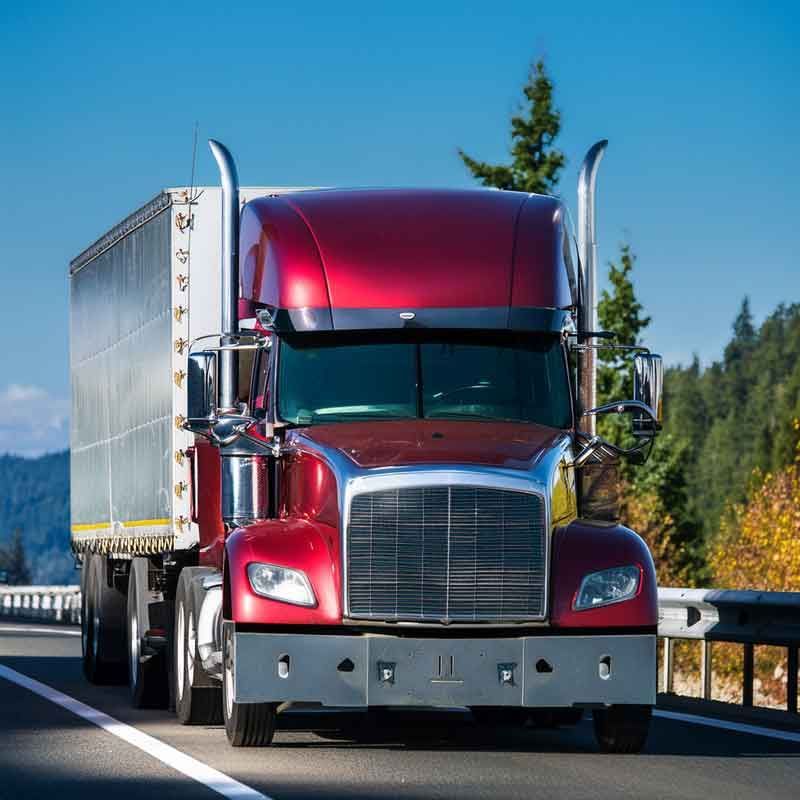
What defines a standard TL shipment?
A standard truckload shipment fills an entire semi-trailer truck. Typically weighing between 10,000 and 44,000 pounds, it occupies approximately 48 to 53 feet of trailer space. This method efficiently and economically transports large quantities of goods from one location to another. In a standard truckload shipment, the shipper covers the cost of the entire truck's use, regardless of whether the load occupies all available space.
This differs from less-than-truckload (LTL) shipments, where multiple shipments from various shippers consolidate freight into a single truck for shipping efficiency.
Benefits of FTL trucking:
Truckload shipping provides cost-effectiveness by allowing large quantities of goods to be transported in a single shipment, reducing per-unit transportation costs. With FTL, dedicated truck space ensures efficient transit times and minimizes handling, decreasing the risk of damage or loss during transport. Additionally, FTL shipments offer customized services to meet specific needs, including dedicated equipment and direct delivery options. This streamlined approach simplifies logistics, requiring fewer touchpoints and coordination compared to LTL shipments. Overall, FTL shipping provides businesses with an effective, efficient, and customizable solution for transporting large quantities of goods.
What are LTL Carriers?
LTL carriers specialize in moving freight that doesn’t require a full truck. They combine smaller shipments from different shippers into one truckload, which increases efficiency and reduces costs for everyone involved.
These carriers run networks of distribution centers, known as LTL terminals. They use advanced logistics systems to route and manage shipments effectively. This ensures that goods are delivered on time and in the most cost-efficient manner. LTL carriers are essential to the transportation industry. They enable businesses of all sizes and sectors to move goods efficiently without needing a full truckload. Their services are especially valuable for companies looking to save on shipping costs while maintaining reliable delivery times.
Who are LTL Carrier examples?
Some of the top LTL carriers include XPO, Old Dominion, ABF, Pitt Ohio, and Estes Express. These LTL companies are known for their reliability and expertise in handling less-than-truckload shipments.

What defines a standard TL shipment?
A standard truckload shipment completely fills a semi-trailer truck. Weighing typically between 10,000 and 45,000 pounds, shippers freight takes up about 48 to 53 feet of trailer space. This FTL shipping method moves large quantities of goods efficiently and economically from one location to another. With a standard full truckload shipment, the shipper bears the cost of the entire truck's use, regardless of whether the load fills all available space. Shippers can pay to have additional stop off points for their load in-transit, called a multi-stop truckload.
Multi-Stop Truckload
A multi-stop truckload, also referred to as a multi-stop full truckload shipment or multi-stop FTL load, entails a dedicated truckload shipment making multiple stops along its route for delivery or pickup. Unlike a direct shipment from one origin to one destination, the truck stops several times to deliver or collect goods at various locations. This transportation method is commonly employed for shipments involving multiple destinations or pickups within a closely located geographic area. Coordinating multi-stop truckload shipments necessitates meticulous planning to enhance efficiency and guarantee punctual delivery or pickup at each stop along the optimized route.
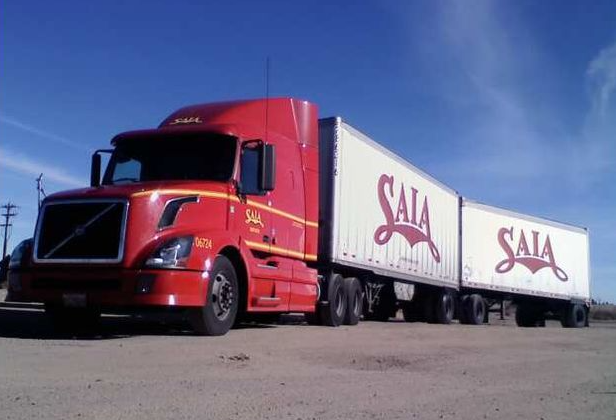
What is the difference between an LTL and TL carrier?
The primary distinction between LTL (Less-than-Truckload) and TL (Truckload) carriers lies in the volume of freight they handle in a single shipment.
LTL carriers consolidate multiple smaller shipments from various shippers into one truck, meaning the shipment doesn't occupy the entire truck load. Conversely, TL carriers transport a full truckload of freight for a single shipper, filling the entire truck.
Because LTL carriers transport multiple shipments from different shippers, they often need to make multiple stops and pickups in route to deliver all shipments to their destinations. This can extend transit times and increase the likelihood of freight handling, potentially raising the risk of damage or loss.
In contrast, TL carriers can offer faster transit times and a more direct route for the shipment, as there are no stops or pickups along the way. Because there are no additional stop-offs in transit, nor a breakbulk terminal network, truckloads have a lower cargo claims ratio. However, TL shipments typically incur higher shipping costs than LTL shipments since the shipper covers the entire truck's cost, regardless of the space the shipment occupies.
The principal disparity between LTL and TL carriers lies in the volume of freight shipped, affecting transit time, handling, and shipment cost.
How to Calculate the Cost of a Truckload Shipment
To determine the cost of a truckload shipment, start by multiplying the rate per mile by the distance. Then, add any charges related to weight, size, and additional accessorial services needed.
Key Factors in Truckload Shipping Costs
- Distance: The rate per mile depends on the distance between the origin and destination. Longer distances generally mean higher costs. Keep in mind that rates can vary by region, so it's important to consider geographical differences.
- Weight: Truckload carriers set rates based on the shipment's weight. Heavier loads require more fuel and may need special handling. Rates might be calculated per pound or per hundredweight.
- Size: Larger shipments often require more space or specialized equipment, leading to extra charges. If your shipment is oversized or overweight, expect additional fees.
- Type of Cargo: Certain types of cargo, such as hazardous materials or temperature-sensitive goods, require special handling. This can increase the overall cost, especially if TWIC card requirements apply.
- Additional Services: Any extra accessorial services, like
expedited shipping,
liftgate assistance, or inside delivery, will add to the total cost.
Why Work with a Freight Broker?
Given the potential for $/mile rate fluctuations due to factors like carrier backhaul opportunities and volatile market conditions, it’s wise to work with a freight broker like TLI. Freight brokers like TLI compare rates from multiple carriers, helping you find the most cost-effective option.

Backhaul Shipping Lanes
A backhaul refers to transporting goods on the return trip of a truck that would otherwise travel empty or partially empty after completing a delivery. By utilizing the available space, backhauls maximize efficiency and lower transportation costs.
How Backhauls Work
Instead of returning to its origin or heading to another destination empty, the truck carries goods back. This practice is common in logistics as it reduces the number of empty miles traveled, optimizing resource use.
The Benefits of Backhauls
Backhauls are crucial for minimizing waste in transportation. They not only save on fuel costs but also help reduce overall shipping expenses. By filling trucks on their return trips, carriers can offer more competitive rates to shippers.
TLI’s Role in Backhaul Opportunities
TLI partners with carriers to identify and secure backhaul opportunities. This collaboration allows TLI to offer shippers pricing below market rates, making their services both cost-effective and efficient.
How do you determine the cost of an LTL shipment?
To determine the cost of an LTL freight shipment, carriers employ a shipment density calculator to ascertain the freight's density, which in turn determines its NMFC freight class. Freight classification involves categorizing shipments based on their characteristics to determine pricing and handling requirements. The NMFC freight class is a standardized system that categorizes freight according to shipment density, stowability, handling, and liability. Subsequently, pricing is determined based on weight, zip codes, and freight class using a rating engine to calculate the cost.
A Transportation Management System solution like ViewPoint TMS can streamline carrier rating for an optimal routing guide.
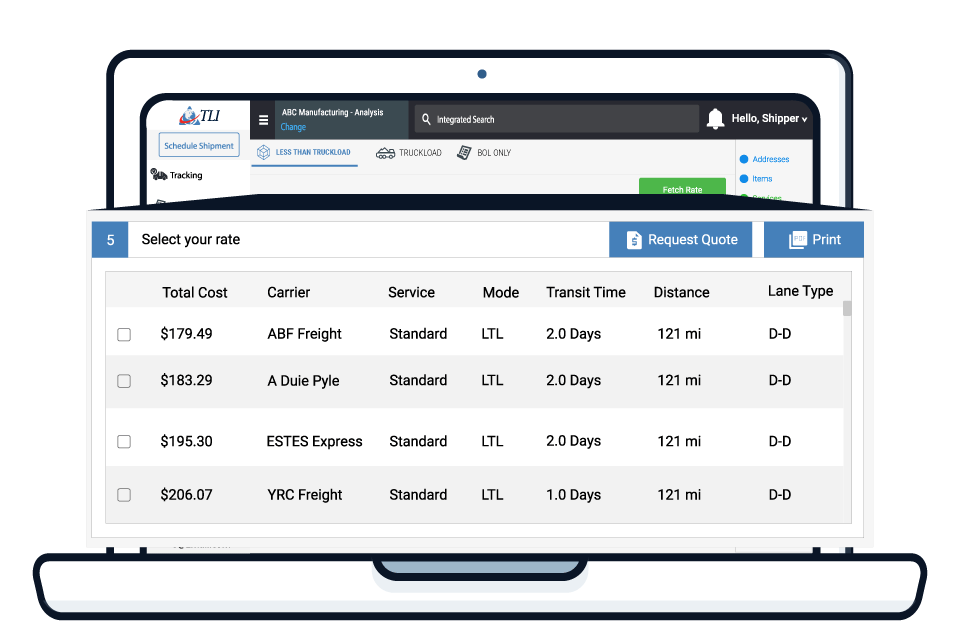
What are the pricing structures for the LTL market?
The main difference between blanket and custom contracts for Less-than-Truckload (LTL) shipments lies in the level of flexibility and specificity in pricing and terms.
Blanket LTL Contracts
A blanket contract covers a wide range of shipments over a set period, usually one year. The pricing and terms are fixed and apply uniformly to all shipments, regardless of destination, weight, or other factors. This type of contract is ideal for shippers with a high volume of regular LTL shipments to various locations. It simplifies the pricing and payment process.
Custom LTL Contracts
In contrast, a custom LTL contract offers more flexibility and is tailored to the shipper's specific needs. The pricing and terms are negotiated for each shipment, taking into account factors like destination, weight, and any special requirements. This contract type is suited for shippers with unique or complex shipping needs, such as those requiring specialized equipment or handling, who want more control over pricing and accessorial terms.
TLI negotiates alternative contracts with LTL carriers, including dynamic-based pricing, density-based pricing, point-to-point pricing, linear feet pricing, and various other methods such as negotiating an FAK (Freight All Kinds).
What is the pricing structure of the TL market?
The truckload (TL) market operates with two main types of shipments: spot truckload and contract truckload.
Spot Truckload
Spot truckload shipments are booked on the spot market, where carriers bid on available loads. This approach is often used for last-minute or irregular shipments, with rates fluctuating based on demand and availability.
Contract Truckload
In contrast, contract truckload involves a long-term agreement between a shipper and a carrier. This contract secures a specific capacity allocation over a set period, providing more predictable rates and reliable service.
While both LTL and truckload shipping have their merits and offer cost savings, the choice largely hinges on the size and characteristics of the shipment. For many shippers, partnering with a logistics 3PL like Translogistics may present the optimal solution, as each shipment can be individually optimized across both carrier options. LTL freight shipments are well-suited for small to medium-sized loads, whereas truckload shipping is preferable for larger shipments requiring an entire truck. TLI partners with shippers who route both modes of transportation. Understanding the disparities between these transportation modes is vital for shippers to make well-informed decisions regarding their shipping requirements.
TLI Insights
Get the latest logistics insights and tips from Translogistics’ award-winning team. Stay ahead in transportation planning.
Questions? Email us at marketing@tli.email

